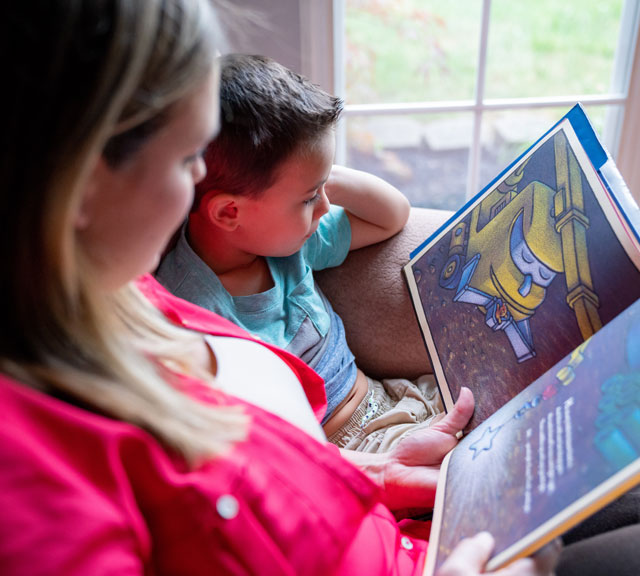‘If Mom Loves Me, How Come There’s a New Baby?’

Find Your Perfect Match
Answer a few questions and we'll provide you with a list of primary care providers that best fit your needs.
A new baby may cause some big questions and anxieties for your first born. Among them: “Does Mom still care about me?”
But don’t worry. Here are 10 ways to help your older children feel confident in your love and their role in the family – and maybe even get them a little excited to meet their new sibling.
Think about giving birth from a toddler’s perspective: Wouldn’t it be unsettling to have Mom suddenly gone for a few days?
1. Prepare older kids for the new arrival. Before your new baby’s delivery, read stories to your child about becoming a big brother. Read with an excited tone. Toddlers may not understand the concept of siblings, but they can pick up on enthusiasm.
2. Make a game plan for your hospital stay. Think about giving birth from a toddler’s perspective: Wouldn’t it be unsettling to have Mom suddenly gone for a few days? To lessen the shock, prepare your child ahead of time. Plan a special event or two for them to enjoy with trusted caregivers while you’re away. “When Mommy goes to the hospital to have the baby, you and Grandma will go to the zoo together!”

3. Focus on your older child during introductions. If possible, have yourspouse or other caregiver bring the new baby inside the house – while you spend a few moments reconnecting with your older child before introducing him and the baby.
4. Sweeten the deal. If possible, give your child a little gift to let him know that you were thinking of him while you were away. Some parents even like to bring a gift “from the baby.”
5. Maintain the “same old, same old.” After your baby makes her grand entrance into the family, keep your older child’s routine as similar as possible. For instance, nap times, snack times, bed times. The comfort of the familiar can help your child adjust to his new normal. If not you, have another trusted adult take him to his favorite story time. And when it’s time for your evening walk, put the baby in a sling and take them both.
6. Prepare for challenges. You know how great it felt when your kid finally became potty trained or stopped sucking his thumb? Well, take a deep breath and muster up your patience, because those behaviors might come back for a little bit after the new baby arrives. It’s completely normal, and it will pass.
7. Carve out one-on-one time. Everyone craves undivided attention from loved ones. Even 10 to 20 minutes of quality time a day with your older child can help him tremendously.
8. Show empathy. Regardless of how much love and attention you lavish on your older child, you may not be able to completely protect her from the temporary pain of losing her only-child status. So what’s a mom to do? Encourage her to share her feelings with you and let her know that it’s okay if she wants things to be how they were before.
While we can’t save our children from every hurt, scratch or boo-boo in this life, we can show empathy and give them tools to communicate their emotions.
9. Make feeding time story time, too! You can stay connected to your older child by asking him to sit next to you while you feed the baby – and read to him. Have him choose a book and hold it on his lap, as he turns the pages for you.
10. Enlist your older child’s help. Young children love to be taken seriously. Ask your child to fetch you a bottle, put the diapers away on the shelf or put something down the laundry shoot for you. Praise him for being a good helper. His help will make your life easier, and your positive reinforcement will help him feel better about himself and his place in the family.
Remember, even “big kids” need help adjusting to a new baby sibling. But with extra snuggles, hugs and a whole lot of empathy, your child will get through this challenge and learn positive strategies for dealing with stressful situations in the future.
Find Your Perfect Match
Answer a few questions and we'll provide you with a list of primary care providers that best fit your needs.
Source: American Academy of Pediatrics; AHA Parenting; What to Expect When You’re Expecting




